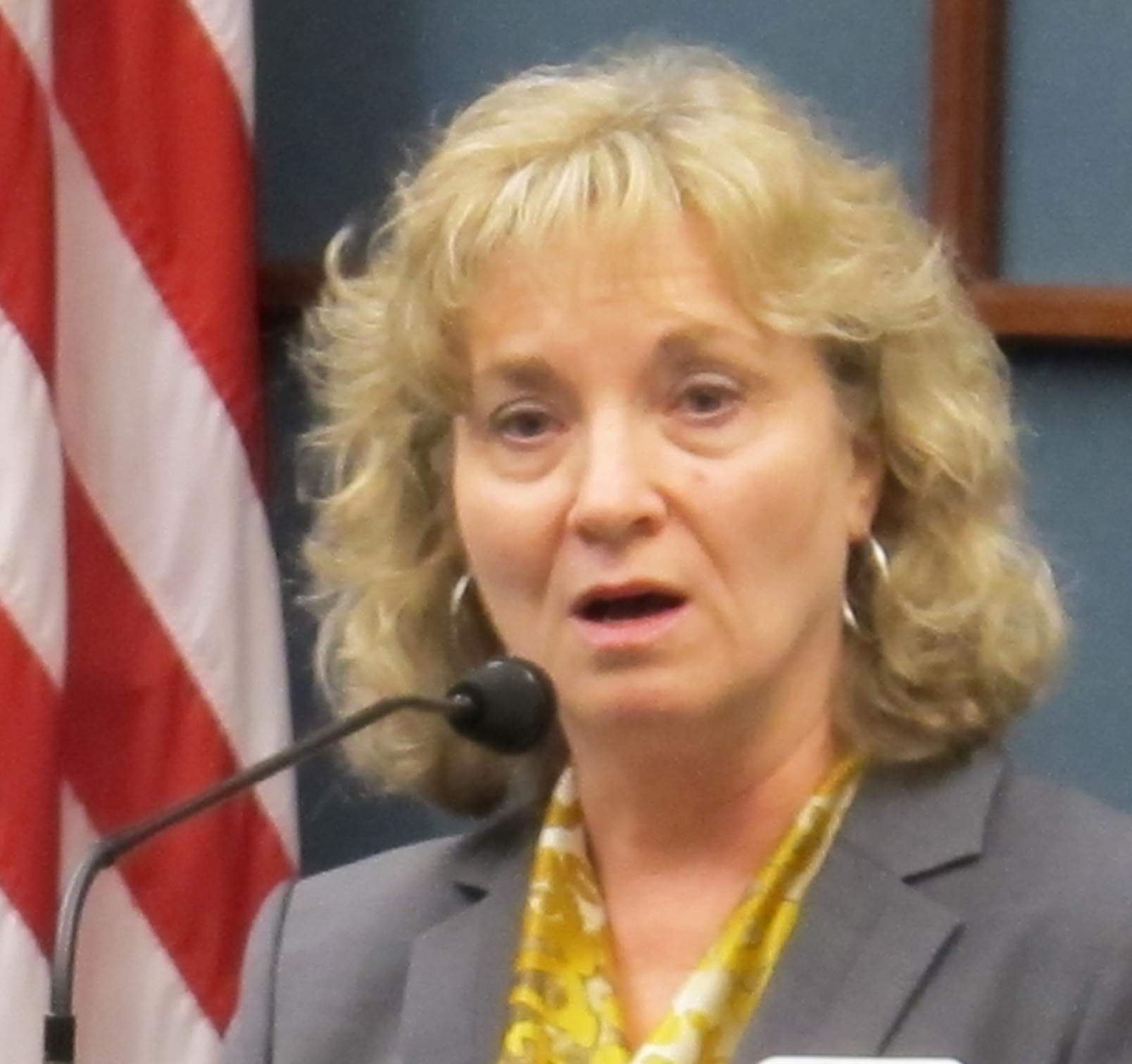Between Bennett & Ritz, Stark Contrasts Define State Superintendent's Race

Photos courtesy of the Bennett and Ritz campaigns
Superintendent of Public Instruction Tony Bennett, left, is running for reelection against Democrat Glenda Ritz.
Indiana is in the middle of an education overhaul, but whether it continues could depend on the outcome of the state superintendent’s race.
Republican incumbent Tony Bennett has pushed for change since taking office four years ago, but not everyone agrees with how he’s transforming Indiana classrooms. In fact, his challenger, Democrat Glenda Ritz, says she’ll roll back many of Bennett’s key initiatives if elected.
“The campaign has really come down to a question about is it too fast or are we trying to do too much?” says Jonathan Plucker, director of the Center for Evaluation and Education Policy at Indiana University.
For Ritz’s supporters, the answer is yes. But Bennett and his supporters — and judging by the money pouring into his campaign from across the country, there are a lot of them— the answer is no. It’s a race not just between two candidates, but two schools of thought on how to improve schools.
- When Candidates Disagree On How To Fix SchoolsStateImpact Indiana‘s Elle Moxley explains why state superintendent Tony Bennett continues to push for change in Indiana classrooms even as challenger Glenda Ritz campaigns to roll back his policies.Download
How Tony Bennett Has Changed Indiana Schools
Four years ago the only Tony Bennett you probably knew was the singer. Today if you don’t recognize Indiana’s Superintendent of Public Instruction by name, you’re probably familiar with his policies — high stakes reading exams for third graders, merit pay for teachers, A-F grading for schools.
Bennett says his policies have raised the stakes for Indiana schools.
“If you look at the number of schools that have removed themselves the list for potential intervention, it’s pretty astounding,” says Bennett. “Much of that is because we take accountability seriously in Indiana.”
Seventy-one percent of Indiana students passed both the math and English language arts ISTEP tests last spring. Scores are up eight points since Bennett took office in 2009. It’s good news — unless you don’t think the state’s standardized tests are a good measure of student performance.
Why Glenda Ritz Says She’ll Roll Back Bennett’s Policies
Democratic superintendent candidate Glenda Ritz doesn’t like high stakes tests, especially Indiana’s new high stakes reading exam, the IREAD-3. She says third graders shouldn’t have to pass a reading test to move on to fourth grade.
“If the cut off at grade four is a 76, then a student who scores a 76 passes, and a student who scores a 75 fails — just as surely as the student who scores a 35,” says Ritz.Ritz, a library media specialist in Indianapolis’ Washington Township, says she’s seen firsthand the detrimental effects of the IREAD-3. It’s too much pressure, she says, and it’s time for Indiana to take a step back.
“Voters in Indiana really don’t want to see the high stakes testing we have going on now, and they really don’t want to see our schools privatized,” says Ritz.
That’s the message she’s taking on the campaign trail. Because Ritz still teaches two days a week, she’s squeezing in events after school and on the weekends. She may not have the same name recognition as Bennett, but she hopes to have the support of a powerful ally — teachers who feel the current administration has blamed them for school failures.
“There’s no question that among public school teachers in the state of Indiana there’s a general perception that they kind of feel like they’ve been marginalized, even maybe vilified,” says Plucker.
Ritz’s biggest backer is the Indiana State Teacher’s Association. She’s organizing through the local teachers unions and says she has enough money to run the campaign she wants, even if Bennett can vastly outspend her.
What’s Next For Schools If Bennett Wins A Second Term
Ritz’s supporters say it’s too soon to tell if the state’s recent education initiatives will be successful. But Bennett is unapologetic about the policies he’s pushed through during his first term.

Kyle Stokes / StateImpact Indiana
State superintendent Tony Bennett delivers his 2012 State of Education Address at the Indiana Historical Society.
“We don’t think small. That’s not how you drive education reform in a state,” he says.
In fact, Bennett announced during his State of Education address last month that he’ll push to speed up the timeline for state takeover of struggling schools. He’s also seeking legislative support for the power to take over entire school corporations where failure has become quote-“systemic.”
“I don’t think accountability should stop at individual schools when many times school failure is the result of maybe some district failure,” says Bennett.
The Indiana Department of Education is new to running schools. But Plucker says he understands why Bennett is already angling for broader intervention strategies: People are getting impatient. They want to see better schools, now.
“So it seems aggressive, but I think it really comes from this place where we’re all so frustrated that we’re not getting much traction,” says Plucker.
Why A Ritz Victory Might Not Completely Change The Course
Championing greater accountability might win Bennett even broader support from his backers, but Ritz is already pushing back. She wants to dismantle the A through F grading system that’s a part of Indiana’s No Child Left Behind waiver. If that means dismantling the waiver, so be it.

Kyle Stokes / StateImpact Indiana
Glenda Ritz, the Democratic candidate for Indiana Superintendent of Public Instruction, speaks to about 60 people gathered in the Bloomington City Council chambers in August.
“So we’re going to have to take a serious look at that waiver in itself,” says Ritz. “That waiver has items in it we’re going to need to comply with … which may not want to be the path we want to head in Indiana for education.”
But whether Ritz could actually change the waiver if elected remains to be seen. Plucker points out Indiana will soon have a new governor and new state lawmakers — and no one knows how well they’ll all work together.
“I don’t think anyone four years ago would have predicted all the things that have happened in the state of Indiana with regard to public education, or private education with vouchers,” Plucker says. “So we just really don’t know how these things are going to play out.”
Podcast: Play in new window | Download




